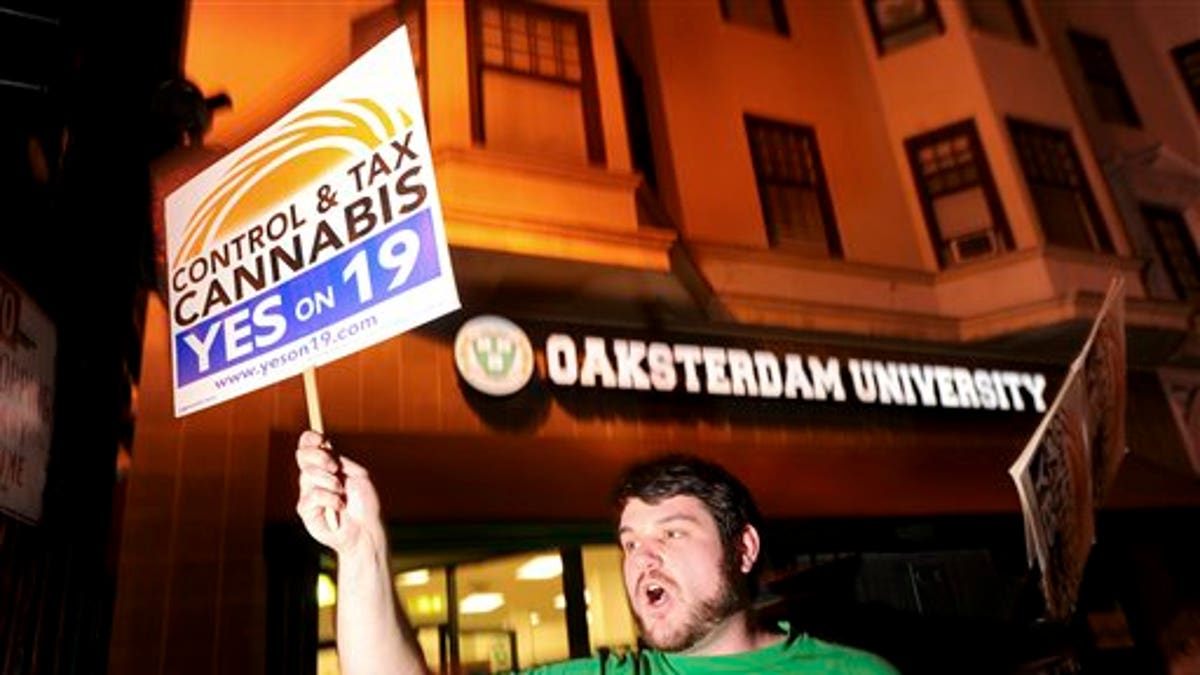
Daniel Costa, a volunteer with the campaign to legalize marijuana, rallies last minute voters to support Proposition 19 shortly before polls closed on Tuesday, Nov. 2, 2010, in Oakland, Calif. If passed, the California proposal would let adults possess up to an ounce of pot, consume it in private places as long as no children were present and grow it in small private plots. (AP Photo/Noah Berger)
California voters have rejected a measure that would have made their state the first to legalize the use and sale of marijuana.
California's marijuana proposal — titled the Regulate, Control and Tax Cannabis Act — would have allowed adults 21 and over to possess up to an ounce of pot, consume it in nonpublic places as long as no children were present, and grow it in small private plots.
Proposition 19 also would have authorized local governments to permit commercial pot cultivation, as well as the sale and use of marijuana at licensed establishments.
The spirited campaign over Proposition 19 had pitted the state's political and law enforcement establishment against determined activists seeking to end the prohibition of pot.
Proponents pitched it as a sensible, though unprecedented, experiment that would provide much-needed revenue for the cash-strapped state, dent the drug-related violence in Mexico by causing pot prices to plummet, and reduce marijuana arrests that they say disproportionately target minority youth.
The state branches of the NAACP and the League of United Latin American Citizens endorsed it, as did several retired police chiefs. However, every major newspaper, both political parties, the two candidates for governor and all but a handful of leading politicians came out against it.
It was by far the highest-profile of the 160 ballot measures being decided in 37 states. Other measures dealt with abortion, tax cuts and health care reform.
Federal officials said they would continue enforcing laws against marijuana possession and sales if the initiative had passed.
Even facing defeat, Prop 19 supporters said they were buoyed by a new Gallup poll showing that national support for legalizing marijuana has reached an all-time high of 46 percent. Gallup said majority support could come within a few years if recent trends continue.
With reporting by The Associated Press.







































